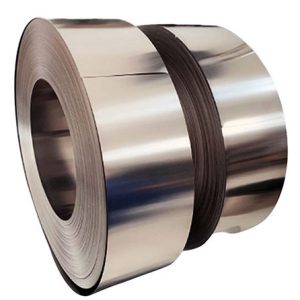3003 aluminum foil is a versatile and widely used material that offers a wide range of benefits across a variety of industries. This aluminum alloy is composed of 97.1% aluminum, 1.1% copper, and 1.8% manganese, which gives it a number of desirable physical and chemical properties.
When it comes to the production of 3003 aluminum foil, the alloy is typically produced using the rolling process. This involves passing the material through a series of rollers to reduce its thickness and create a uniform surface finish. The resulting material can be further processed into a wide range of products, including sheets, strips, and coils.

Features of 300 aluminum foil
One of the key features of 3003 aluminum foil is its excellent corrosion resistance. The alloy is highly resistant to both atmospheric and chemical corrosion, which makes it ideal for use in applications where exposure to harsh environments is a concern. This property is particularly useful in the production of food and beverage packaging, as well as in the construction industry, where the material is commonly used in roofing and siding applications.
Another important property of 3003 aluminum foil is its excellent formability. The alloy is highly malleable and can be easily formed into a variety of shapes and sizes. This makes it well-suited for use in applications where complex shapes or intricate designs are required, such as in the production of heat exchangers, HVAC equipment, and electronic components.
In addition to its formability and corrosion resistance, 3003 aluminum foil also offers a high level of strength and durability. The alloy has a high tensile strength, which makes it resistant to deformation and breakage under stress. This property is particularly important in the production of structural components, such as aircraft components and automotive parts.

Application of 3003 aluminum foil
One of the key applications for 3003 aluminum foil is in the food and beverage packaging industry. The material’s excellent corrosion resistance, combined with its ability to be easily formed and shaped, make it ideal for use in the production of food packaging products such as foil trays, containers, and lids. In addition, 3003 aluminum foil is non-toxic, making it a safe and reliable option for use in direct contact with food products.
Another common application for 3003 aluminum foil is in the construction industry. The material’s high strength and durability make it an excellent choice for use in roofing and siding applications. It can also be used as a structural material for building components such as window frames, door frames, and support beams.
The electronics industry is another major user of 3003 aluminum foil. The material’s excellent electrical conductivity makes it well-suited for use in the production of electronic components such as capacitors and heat sinks. Additionally, 3003 aluminum foil’s high thermal conductivity makes it an ideal choice for use in heat exchangers, which are used to transfer heat from one fluid to another in a variety of industrial processes.
3003 aluminum foil is a highly versatile material that offers a wide range of benefits across a variety of industries. Its excellent corrosion resistance, formability, strength, and durability make it an ideal choice for use in a wide range of applications, from food and beverage packaging to construction and aerospace.


